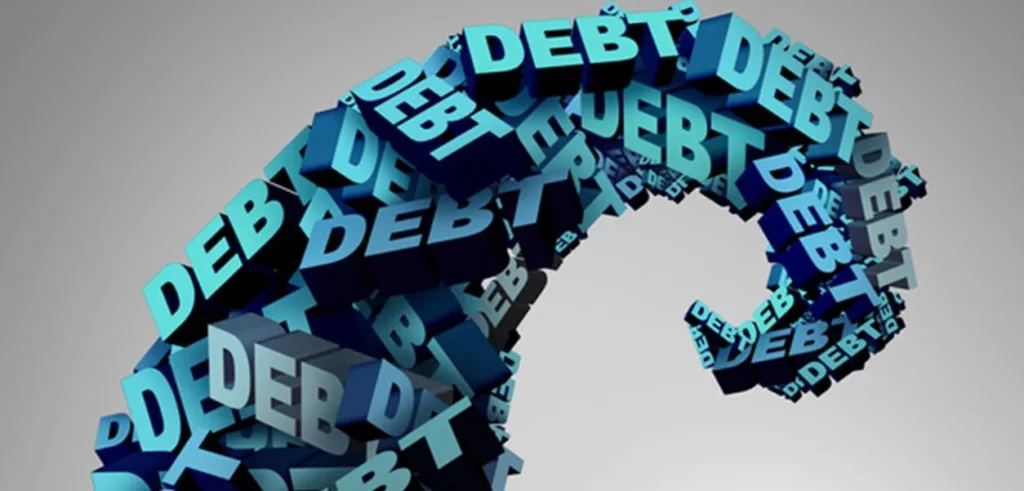
There are many challenges associated with planning retirement and retirement income. Over the years, we’ve highlighted lots of ways to tackle them one by one. But the ‘fear of running out’ (FORO) remains the main concern for many older Australians. And recent updates on the state of indebtedness of those heading into retirement just adds to the sense of pressure on retirees. Today we unpack the subject of debt and retirement and suggest different ways to handle it.
Some background
It’s hardly surprising that carrying debt into retirement feels like a taboo. For far too long the most commonly quoted measure of retirement spending – the ASFA Retirement Living Standard – has assumed that single and couple retirees are living in a fully-owned home. This makes no sense at all, given that
- nearly 13% of retirees rent,
- about 11% live with families or friends, and
- an increasing proportion of homeowners still have mortgages at retirement.
Yet that retirement assumption that you own your own home persists, often leading to a feeling of guilt for those retirees who have yet to pay down the mortgage.
What are the real numbers?
Research released by AMP Wealth in December 2023 states that (consistent with Australian Bureau of Statistics data) the household debt level for over 55s has increased fourfold over the last 20 years. AMP also reports that nine out of 10 Australians aged over 50 believe that they will still be paying off a mortgage when they retire. And one in three are not confident that their savings will provide for an adequate retirement lifestyle. The dream of a debt-free retirement with housing security seems to be fading for many older Australians. Separate research from the Retirement Income Review (2020) suggests that, of the 76% of homeowner retirees, 20% held a mortgage. Given that this report is now almost four years old, the proportion of current retirees with a mortgage may now be significantly higher.
Should you pay down debt?
Different types of debt require different strategies and seeking professional advice is usually the best start. If you are carrying credit card debt, you are paying astronomical interest on this money so this could be the first loan to tackle.
If you are struggling to cover personal loans, you may need to speak directly to the lender.
If your debt is in the form of a home mortgage, the way you manage this in retirement can have major effects on your income streams. Yes, the ongoing interest rate increases over the past two years can add to your sense of financial stress. so it’s important to take a step back and think about your debt in a holistic way.
Is debt always a bad thing?
Most of us view money through an emotional as well as rational lens. The word ‘debt’ can carry particularly negative connotations. But not all debt is bad debt and reviewing your entire financial situation can help you to reframe and reconsider your options.
Bill and Ben:
When debt is relative
Here’s the case of two single male retirees, aged 67, who are applying for the Age Pension. Both are still doing some part time work earning $120 a week. The application of the work bonus means this won’t affect their Age Pension entitlements.
Their situations are similar, as per the table below. Bill is heading into retirement with no debt on his home, Ben has $200,000 yet to repay. Who would you rather be? Before you answer, consider the following summary:
| Bill | Ben | |
| Debt levels | $0 | $200,000 mortgage |
| Home ownership | Fully owned apartment | Mortgage on 3-bedroom home |
| Value of home | $960,000 | $2,200,000 |
| Household contents | $10,000 | $10,000 |
| Assets:Super savings Bank savings | $250,000$5000 | $250,000$5000 |
| Income from part time work | $120 per week or $6240 per annum | $120 per week or $6240 per annum |
| Likely Age Pension entitlement (including supplements) | $1096 per fortnight or $28,514 per week | $1096 per fortnight or $28,514 per week |
| Loan repayments on variable loan (6.25%) | $12,500 per annum or $481 per fortnight | |
| Net assets | $1,225,000 | $2,265,000 |
Who is better off? When we consider net assets, it’s Ben, with total net assets of just over $1m more than those of Bill. But paying down a mortgage on a full Age Pension is not something that most of us would choose to do, is it? If Ben’s income of $34,754 per year (Age Pension plus extra $6240) needs to cover $12,500 annual interest, he will only have $22,254 to live on.
This leaves Ben with some decisions to make.
Does he downsize and use the profit from this sale to pay off the mortgage? But this may mean his assets increase and he loses the full Age Pension entitlement?
OR
Does he start an Account-Based Pension and draw down enough to cover the $12500 per annum he needs to cover interest on his mortgage? This move could also improve his overall tax situation.
OR
Does he consider the government’s Household Equity Access Scheme (HEAS) where he can access wealth in his home at an interest rate lower than his current mortgage costs?
These are just three of the many strategies that Ben can explore.
One of the easiest ways to compare pros and cons of such strategies is to work with a Retirement Essentials adviser using the Safe Spending simulator.
He can then quite quickly identify the best option in terms of his weekly income and how long his money will last.
This will help Ben to compare the different options and think about the one with which he is most comfortable.
For some people downsizing is a dream come true. For others it’s an emotional wrench to leave their home and neighbourhood. Managing debt in retirement should be consistent with maximising your income and your assets. The solution should also make you feel comfortable by matching your emotional needs. Yes, it’s about the money, but sometimes the thing that helps us decide is not about the money at all. It’s about where and how we want to live as we age.
Three step plan to review your own debt in retirement:
- Take a look at your whole financial situation including net assets, pension eligibility and other income streams
- Talk to an adviser about the implications of paying down the mortgage, downsizing or covering current repayments other ways
- Ensure that you are factoring in tax implications as well as Age Pension eligibility and that you are fully across the rules and restrictions of contributing to super at your current age.
Considering paying off a mortgage? Why not explore your options in affordable consultation?
Want to learn more about your own options to manage debt? You can work with an adviser to answer your questions on ways to do this.
Is debt always a negative?
Given the increasing numbers of retirees with mortgages, how do you view debt in retirement? Is it a means to an end? Or something to be dealt with as quickly as possible?






My personal experience was pay of mortgage brought two new cars before retirement and live quite well on pension with some savings if needed
If you will want a credit card in retirement (to pay off fully each month), you’ll need to arrange it BEFORE you retire.
I recently retired, with good Superannuation balance, cash in bank and some shares also owned outside Super.
I have found that banks will not approve credit card for retirees – they only recognize employment income, not Superannuation pension, share dividends, bank interest etc.
I’m in this situation which is really tough financially. The only way I can think of gaining is selling and buying another cheaper house and start renovating all over again.